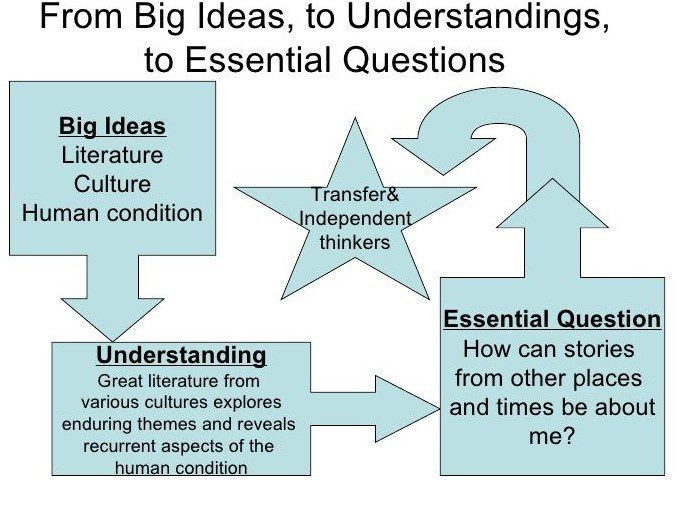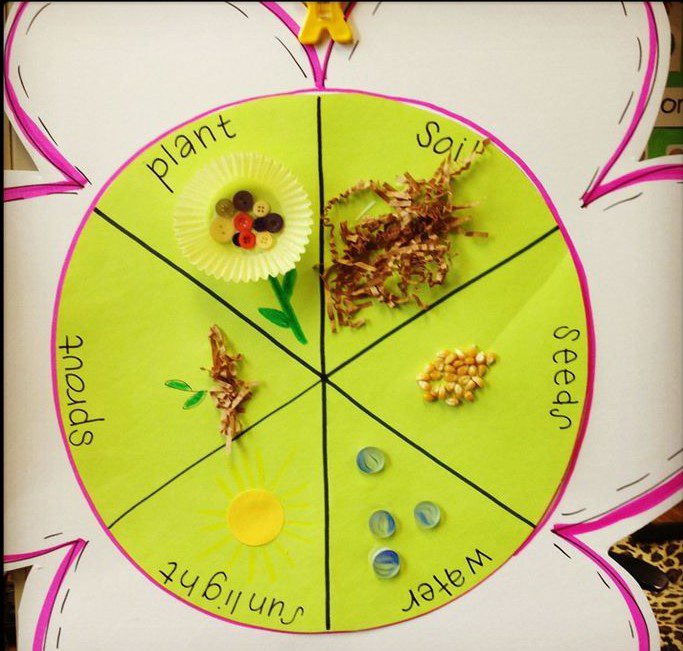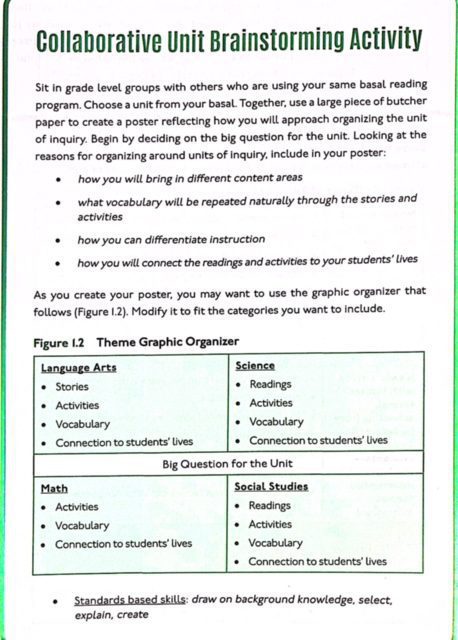
https://learn.teachingchannel.com/video/structure-learning-essential-questions

Essential question key to help English Learners understand the readings and acquire needed skills and vocabulary. This is to help them see the relationships among the readings, suggested by the authors of the book Equitable Access for English Learners.
Teachers can do this by having students answer an overarching question as they become involved in the unit. For example, teachers can ask “How does the weather affect our lives?” Authors pointed out that while it is good to make the connections among the readings and activities salient for all your students by linking them to a big question, it is especially critical for student who are not yet proficient in English.
Reasons for Essential Questions
Authors of the book give several reasons teachers should organize their teaching around units of inquiry based on big questions:
https://wabisabilearning.com/blogs/inquiry/6-steps-writing-essential-questions (Shows teachers how to write essential questions)
Unit Example
Seeds, Plants, And Plant Growth Unit

Using Texas Standards, Rosa, a third grade teacher, created her essential question with her third grade team “How does what we grow help us grow?” Rosa and her team also included sub-questions for students to explore and they include, “What do plants need to live and grow?”, “What are the stages of plant growth?”, and “How long do seeds take to grow into plants?”.
Putting Unit into Context
Rosa works in a large city in Texas. The majority of her English Learners are native Spanish speakers but she also has students whose first languages include Arabic, Vietnamese, and Chinese. Half of her class are native English speakers. Rosa is required to teach language arts. She believes it is important to teach her multilingual students by organizing her curriculum around units of inquiry and teaching both academic language and academic content.
The language art standards including using vocabulary that categorizes and describes sequences, dictating, and composing informational text including procedural texts; reading both fiction and nonfiction; understanding the difference between fact and fiction; reading and making inferences using features of texts, such as charts and graphs; gathering and synthesizing information, etc.
Rosa and her 3rd grade team will share activity ideas and develop a unit that helps their students build academic literacy and content knowledge. During the unit Rosa and her colleagues draw on books available in Spanish to use with Spanish speaking ELs to preview and review the content of the texts they read in English.
Creating the Essential question is the first step in unit planning. In blog that covers background knowledge as part of the Key Practices will be discussed and how Rosa and her colleagues apply it in the Seeds and Plant unit.
Activity
Authors of the book has suggested a brainstorm activity:

